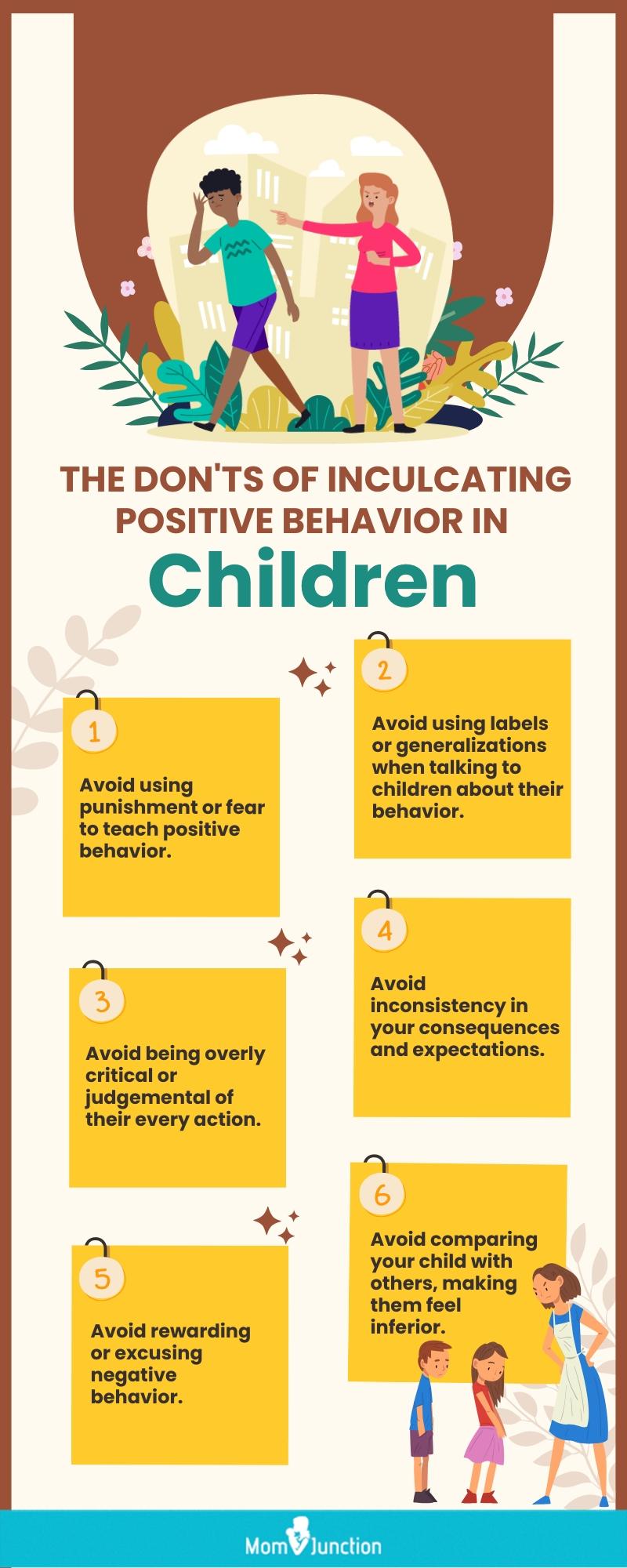The Importance of Discipline in Parenting

Discipline plays a crucial role in parenting as it sets the foundation for a child's growth and development. By providing consistent discipline, parents teach their children essential life skills, such as self-control, responsibility, and respect for others. Discipline helps children understand the boundaries and expectations set by their parents and society, preparing them for future challenges.
Without discipline, children may struggle with impulsivity, lack of self-discipline, and difficulty following rules. It is important for parents to establish clear expectations and enforce them consistently. By using positive reinforcement techniques, parents can encourage good behavior and teach their children the value of making positive choices.
Discipline should not solely rely on punishments but should focus on teaching problem-solving and conflict resolution skills. By dealing with challenging behavior effectively, parents can create a harmonious and supportive environment for their children's emotional and social development. Ultimately, a balanced approach to discipline helps children thrive and become responsible adults.
Understanding the role of discipline in child development
Understanding the role of discipline in child development is crucial for parents. Discipline provides the necessary structure and guidance that children need to develop important life skills. It helps them learn self-control, responsibility, and respect for others. By setting and enforcing clear boundaries, parents teach their children the importance of following rules and understanding consequences. Discipline also prepares children for future challenges by teaching them problem-solving and conflict resolution skills. Without discipline, children may struggle with impulsivity, lack of self-discipline, and difficulty in adapting to societal expectations. Therefore, by providing consistent discipline, parents create a supportive environment that fosters their children's emotional and social development, allowing them to thrive and become responsible adults.
Effective discipline strategies for positive behavior
Effective discipline strategies for promoting positive behavior in children involve setting clear expectations and consistent enforcement. Parents can establish a behavior chart or a reward system to incentivize good conduct. By setting specific goals and rewards, children are motivated to exhibit positive behavior. In addition, parents can use time-outs or loss of privileges as consequences for misbehavior. It is important for parents to remain calm and composed when implementing discipline strategies, as reacting with anger or frustration may escalate the situation. Providing praise and recognition for good behavior is also crucial in reinforcing positive conduct. By using effective discipline strategies, parents can foster a supportive and structured environment that promotes positive behavior in children.
Setting Clear Expectations

Setting clear expectations is essential in effective parenting. By establishing rules and boundaries, parents provide a framework for their children's behavior. Clear expectations help children understand what is expected of them and what behavior is acceptable. It is crucial for parents to communicate these expectations clearly and consistently. This can be done through open and honest conversations with children, explaining the rules and boundaries, and discussing the reasons behind them. Consistency is key in enforcing expectations. When parents consistently uphold the established rules, children learn that there are consequences for not following them. Setting clear expectations and maintaining open communication helps create a respectful and harmonious parent-child relationship based on mutual understanding and cooperation.
Establishing rules and boundaries in parenting

Establishing rules and boundaries in parenting is crucial for creating a structured environment that promotes positive behavior. Parents should clearly define expectations and limits for their children. This involves setting specific rules for different aspects of their lives, such as chores, homework, screen time, and manners. These rules should be age-appropriate and tailored to the individual needs of each child. By establishing boundaries, parents teach their children about personal responsibility, respect for others, and self-discipline. It is important for parents to explain the reasons behind these rules and boundaries, so that children understand their importance. Regular discussions and reminders can help reinforce these expectations and ensure that they are consistently followed. When parents consistently enforce rules and boundaries, they create a sense of security and stability for their children, which ultimately fosters their overall development and well-being.
Communication and consistency in enforcing expectations

Communication and consistency play essential roles in enforcing expectations as part of effective parenting. Clear and open communication between parents and children helps ensure that expectations are understood and followed. It is important for parents to clearly explain the rules and boundaries to their children, and to listen to their thoughts and concerns. Regular conversations about expectations can reinforce their importance and provide an opportunity for clarification.
Consistency is also key in enforcing expectations. Parents need to consistently follow through with consequences when rules are broken, and consistently reward positive behavior. This helps children understand that the expectations are non-negotiable and fosters a sense of accountability. When parents communicate expectations clearly and enforce them consistently, it creates a stable and predictable environment for children, promoting positive behavior and overall well-being.
Positive Reinforcement Techniques
Positive reinforcement techniques are powerful tools that can be used to shape positive behavior in children. By rewarding desirable behaviors, parents can motivate their children to continue engaging in those behaviors. Rewards can be in the form of praise, small treats, or privileges that are meaningful to the child. When children are acknowledged and rewarded for their efforts and good behavior, they develop a sense of pride and self-worth. This positive reinforcement helps children understand what behaviors are expected of them and encourages them to make better choices in the future. It is important for parents to be specific in their praise, highlighting the specific behavior or action they are recognizing. By consistently using positive reinforcement, parents can create a positive and supportive environment where children feel appreciated and motivated to do their best.
The power of positive reinforcement in shaping behavior
Positive reinforcement is a powerful tool in shaping behavior and fostering positive development in children. When parents use positive reinforcement techniques, they focus on acknowledging and rewarding their child's desirable actions and behaviors. This can be done through verbal praise, small treats, or privileges that are meaningful to the child. By consistently reinforcing positive behavior, children learn what is expected of them and are motivated to continue engaging in those behaviors. This approach helps children develop a sense of pride and self-worth, as they are recognized and appreciated for their efforts. By highlighting specific behaviors and actions, parents can effectively reinforce positive conduct and encourage their children to make better choices in the future. This creates a supportive and encouraging environment where children feel valued and motivated to do their best.
Rewards and praise for encouraging good conduct

Rewards and praise are effective tools for encouraging good conduct in children. When parents provide rewards for positive behavior, such as completing chores or following rules, it reinforces the idea that those actions are desirable and worthwhile. Rewards can come in various forms, such as small treats, special privileges, or extra time doing something the child enjoys. Praise is equally important as it acknowledges and expresses appreciation for the child's efforts. By using specific and sincere praise, parents can highlight the exact behavior they want to encourage, reinforcing the connection between the action and the reward. This positive reinforcement helps children understand what behaviors are expected of them and motivates them to continue displaying good conduct in the future.
Discipline without Punishment
Discipline without Punishment: Alternative disciplinary methods beyond traditional punishment help parents promote positive behavior in their children. Instead of focusing on punitive measures, parents can teach their children problem-solving and conflict resolution skills. By empowering children to find solutions to their own misbehavior, parents encourage independence and personal growth. This approach emphasizes open communication and active listening, allowing children to express their feelings and thoughts. Encouraging children to understand the consequences of their actions and helping them brainstorm alternative choices can be effective in preventing future misbehavior. By adopting discipline methods that prioritize understanding and growth, parents can create a nurturing and supportive environment that fosters positive behavior and teaches children important life skills in the process.
Alternative disciplinary methods beyond traditional punishment

In addition to traditional punishment, there are alternative disciplinary methods that parents can utilize to promote positive behavior in their children. These methods focus on teaching problem-solving and conflict resolution skills rather than solely enforcing consequences. By empowering children to find solutions to their own misbehavior, parents encourage independence and personal growth. Open communication and active listening play a crucial role in this approach, allowing children to express their feelings and thoughts. Parents can also help their children understand the consequences of their actions and brainstorm alternative choices. By adopting these alternative disciplinary methods, parents create a nurturing and supportive environment that fosters positive behavior and equips children with important life skills.
Teaching problem-solving and conflict resolution skills
Teaching problem-solving and conflict resolution skills is a crucial aspect of discipline in parenting. By focusing on these skills, parents can empower their children to handle conflicts and challenges in a positive way. One method is to encourage open communication and active listening, allowing children to express their feelings and thoughts. Parents can also help their children understand the consequences of their actions and brainstorm alternative choices. By involving children in problem-solving, parents equip them with valuable life skills and teach them to take responsibility for their actions. This approach promotes a nurturing and supportive environment where children learn to resolve conflicts peacefully and make better choices in the future.
Dealing with Challenging Behavior

Dealing with challenging behavior can be one of the most daunting aspects of parenting. Tantrums, defiance, and other difficult behaviors can test a parent's patience and resilience. In these situations, it is important to remain calm and composed, as reacting with anger or frustration can escalate the situation further. Parents can try to understand the underlying reasons for the behavior, such as hunger, fatigue, or a need for attention. Implementing consistent consequences and setting clear boundaries can also help establish structure and routine. Taking a proactive approach by teaching problem-solving and communication skills can empower children to express themselves in a more positive manner. Additionally, parents should prioritize self-care and seek support from family, friends, or professionals when needed. Remember, dealing with challenging behavior requires patience, understanding, and a commitment to supporting your child's growth.
Handling tantrums, defiance, and other challenging behaviors

Handling tantrums, defiance, and other challenging behaviors can be a difficult and stressful part of parenting. When faced with a tantrum or defiant behavior, it is important for parents to stay calm and composed. One effective strategy is to acknowledge and validate the child's feelings while also setting firm boundaries. Distraction techniques or providing a safe space for the child to calm down can also be helpful. It is essential for parents to remain consistent in their approach and not give in to the child's demands during these challenging moments. Additionally, it can be beneficial for parents to seek support from parenting groups or professionals who can provide guidance and strategies for managing these behaviors. Remember, handling challenging behaviors requires patience, understanding, and a focus on finding positive solutions.
Coping strategies for parents in stressful situations
:max_bytes(150000):strip_icc()/VWFam_Illustration_Tips-for-Helping-Your-Child-Succeed-in-Public-Situations_Illustrator_Adriana-Sanchez_Final-8cc75ef6d8c14d8480585c78960dc876.jpg)
Coping with stressful situations is essential for parents to maintain their composure and effectively handle challenging behaviors. It is important for parents to practice self-care and find healthy ways to manage stress. Taking breaks when needed, engaging in relaxation techniques such as deep breathing or meditation, and seeking support from partners, friends, or support groups can all be beneficial in reducing stress. Additionally, setting realistic expectations and being kind to oneself can help alleviate pressure and guilt. It can also be helpful to engage in activities that bring joy and provide a sense of fulfillment. By prioritizing self-care and finding effective coping strategies, parents can better manage stress and navigate challenging moments with their children.
Conclusion

In conclusion, effective discipline is an essential aspect of parenting that promotes positive behavior and the overall development of children. By understanding the importance of discipline and implementing clear expectations, parents can create a supportive environment where children can thrive. Using positive reinforcement techniques, such as rewards and praise, further encourages good conduct and fosters a sense of self-confidence in children. It is also crucial for parents to explore alternative disciplinary methods that focus on teaching problem-solving and conflict resolution skills rather than relying solely on punishment. Dealing with challenging behaviors can be stressful, but by practicing coping strategies and prioritizing self-care, parents can navigate these situations with composure and resilience. By finding a healthy balance of discipline and love, parents can effectively guide their children towards becoming well-rounded individuals.
Creating a healthy balance of discipline and love in parenting
Finding a healthy balance between discipline and love is crucial in parenting. While discipline is necessary for teaching children responsibility and proper behavior, it should always be accompanied by love and support. Parents can achieve this balance by setting clear expectations and boundaries while also fostering a nurturing and loving environment for their children. By using discipline as a tool for guidance and growth rather than punishment, parents can help their children learn from their mistakes and develop problem-solving skills. It is important for parents to practice empathy and understanding, as well as to prioritize open communication with their children. By combining discipline with love and affection, parents can create a supportive and positive parenting approach that helps their children thrive.
Resources for further guidance and support

There are a variety of resources available to parents seeking further guidance and support in navigating the challenges of discipline and parenting. One valuable resource is parenting books, which offer expert advice and practical strategies for effective discipline. Websites and online forums dedicated to parenting also provide a wealth of information, as well as opportunities to connect with other parents facing similar challenges. Parenting classes and workshops, both in-person and online, can provide valuable insights and tools for disciplining children. Additionally, seeking professional help from therapists or counselors specializing in parenting can offer personalized guidance and support. Remember, no parent has to navigate the journey of parenting alone; there are resources available to help every step of the way.
.



0 Post a Comment: